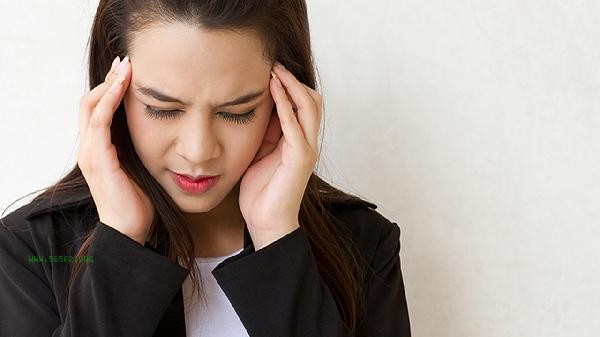The lack of qi during menopause may be related to hormonal fluctuations, changes in cardiovascular function, emotional anxiety, chronic diseases, environmental factors, and other factors. It can be alleviated through lifestyle adjustments, psychological interventions, medication therapy, traditional Chinese medicine conditioning, oxygen therapy, and other methods.

1. Hormonal fluctuations
The decrease in estrogen levels in menopausal women can affect autonomic nervous regulation, leading to abnormal sensitivity of the respiratory center. Some people may experience transient shortness of breath, especially at night or during emotional fluctuations. It is recommended to maintain a regular daily routine, avoid consuming caffeinated beverages, and if necessary, follow the doctor's advice to use drugs that regulate autonomic nervous system function such as glutamate.
2. Changes in cardiovascular function
Decreased estrogen can accelerate the process of arteriosclerosis and affect myocardial blood supply capacity. When accompanied by symptoms of chest tightness and palpitations, it may be related to insufficient blood supply to the coronary arteries. This type of situation requires electrocardiogram examination to rule out organic diseases such as angina pectoris. Daily sodium intake should be controlled, and aerobic exercise should be performed appropriately to improve cardiovascular and pulmonary function.
3. Emotional anxiety
Climacteric mood fluctuations are easy to cause hyperventilation syndrome, which is characterized by shallow breathing, numbness of hands and feet and other symptoms. Cognitive behavioral therapy can help alleviate anxiety, and breathing exercises such as abdominal breathing can effectively improve symptoms. In severe cases, anti anxiety drugs such as paroxetine can be used according to medical advice.

4. Chronic diseases
Existing respiratory diseases such as asthma and chronic obstructive pulmonary disease may worsen during menopause. Hormonal changes can lead to increased airway reactivity and trigger wheezing attacks. These patients need to undergo regular follow-up of lung function, avoid exposure to irritants such as cold air, and adjust the original treatment plan if necessary.
5. Environmental factors
Closed spaces, air pollution, or high-altitude environments may induce breathing difficulties. Menopausal individuals have reduced tolerance to hypoxia, and it is recommended to maintain indoor ventilation and use air purification equipment. Obese individuals with comorbidities need to control their weight and reduce the impact of chest pressure on respiration. When menopausal women experience difficulty breathing, it is recommended to record the time and cause of symptom onset, engage in 30 minutes of soothing exercises such as Tai Chi every day, and increase the intake of plant-based estrogens such as soy products in their diet. If symptoms frequently occur or are accompanied by chest pain, fainting, and other symptoms, it is necessary to promptly investigate cardiovascular and pulmonary diseases. Maintaining an optimistic attitude and relieving stress through mindfulness meditation and other methods can help improve breathing abnormalities caused by autonomic nervous system dysfunction. Those with obvious nighttime symptoms can try sleeping in a semi recumbent position to avoid overeating during dinner.





Comments (0)
Leave a Comment
No comments yet
Be the first to share your thoughts!